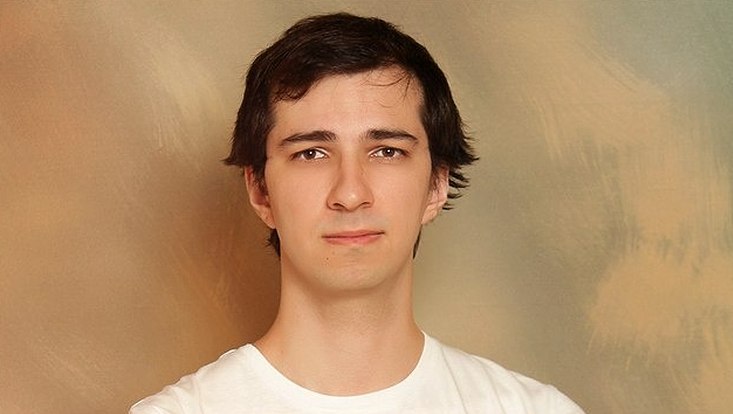Rafael Álvarez-García
27 September 2022

Photo: Rafael Álvarez-García
Rafael Álvarez-García is from Oviedo, a small city located in the north of Spain. He received his Master’s degree in 2021 from LMU and TUM in Munich. His thesis on “Periods and Moduli Stabilization near the Conifold” focused on analytically computing periods near conifold singularities in the moduli space of Calabi-Yau manifolds to construct perturbatively flat vacua. For his PhD, he joined the group of Prof. Dr. Timo Weigand.
What is the topic of your research?
It is expected that, as we traverse an infinite distance in the moduli space of an effective field theory coupled to gravity, we exit the range of validity of the effective description due to an infinite tower of states becoming light. Together with my supervisor Prof. Timo Weigand, I am working on a refinement of this statement, known as the Emergent String Conjecture, which claims that the asymptotically massless states come from either the excitations of a unique weakly coupled and asymptotically tensionless string or from Kaluza-Klein modes. As part of an ongoing effort to test this conjecture in all corners of the moduli space, we are currently focusing on the infinite distance complex structure degenerations of F-theory; a mathematically rich and physically interesting scenario. F-theory provides a geometrization of physics, a dictionary that allows one to translate physical questions regarding string compactifications, like what is their gauge content, into purely geometrical questions. The aforementioned infinite distance limits consist of very severe deformations of this geometry, so we can not only study the origin of the light states, but also, e.g., the fate of gauge algebras as we traverse these limits.
What fascinates you about your research focus?
String theory is a vast subject that tackles profound questions in physics, while at the same time having deep connections with beautiful mathematics. I find particularly awe-inspiring how many times the same problem shows different facets depending on the angle of attack, and yet all of the pieces non-trivially fit together with a satisfying, almost audible, click. Learning how to see the mosaic and not the tesserae is proving to be as exciting as gratifying.
What do you like about the cluster Quantum Universe?
A PhD project is inevitably specialized; the Quantum Universe meetings are a great opportunity to get exposed to a wider array of ideas and learn about what other people in the cluster are focusing on. They also grant an opportunity to present your own research to colleagues. Moreover, with the shift back to in-person activities, I am also looking forward to being able to interact with other early career researchers from diverse fields in the open atmosphere provided by the cluster.
What do you like to do in your free time?
I do have varied hobbies, but perhaps one that is not so common nowadays is a fondness for fountain pens, ink and paper. So, you may find me rocking an ink blotter before I turn the page! (No ink has been splattered in the making of this interview.)
